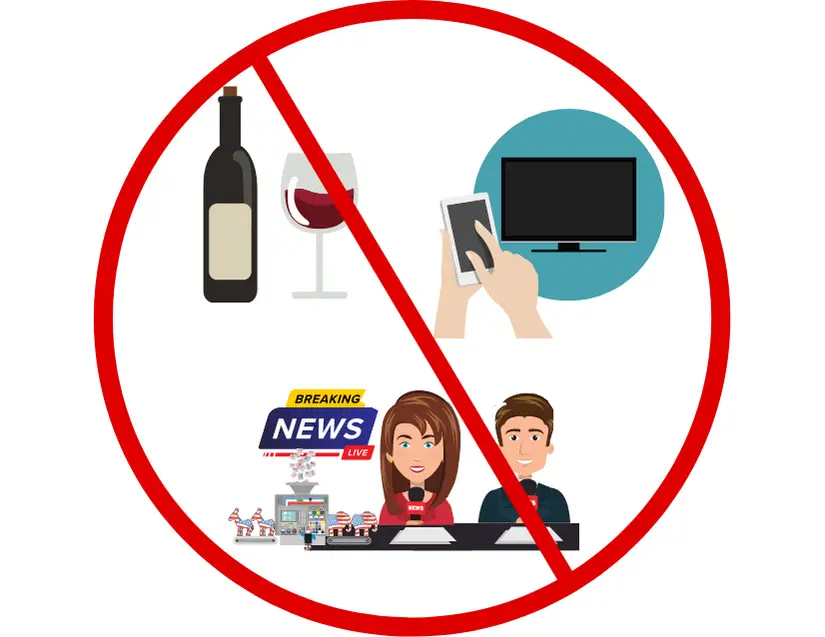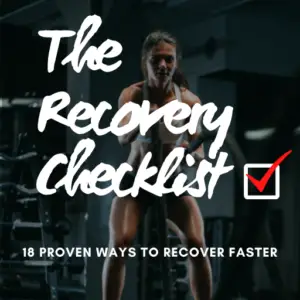Sleep is your superpower. It helps you recover and heal. Plus, it boosts your memory, sharpens your focus, and strengthens your immune system.
It’s no coincidence that elite athletes prioritize sleep. LeBron James and Roger Federer sleep 12 hours a day!
Most Americans Aren’t Elite Athletes
The average American sleeps a measly 6.8 hours per night. Back in 1942, Americans slept 7.9 hours each night! (1). That’s a 1.1 hour difference every single night!
Perhaps smartphones, TV, and video games haven’t helped our sleep habits.
What’s the Damage?
Sleeping too little sabotages our health. Short term, sleep deprivation contributes to:
- Overeating
- Pain
- Irritability
- Poor focus
The long-term effects aren’t any rosier (2). Poor sleep elevates the risk of:
- Depression
- Obesity
- Dementia
- Stroke
- Shorter lifespan
Sleep Hygiene
You’re probably familiar with some sleep hygiene tips: Go to bed and get up at the same time. Keep the bedroom cool and dark. Support your neck and shoulders appropriately. Aim for 7-9 hours of sleep each night.
3 Tips You Won’t Like
These sleep tips aren’t as well-known or popular. They’re inconvenient. You won’t like them. But it’s worth giving them a try to enjoy all the benefits of great sleep.

1. Avoid Alcohol Before Bed
A nightcap can make it easier to fall asleep. But alcohol (and many sleep medications) disrupt the rapid eye movement (REM) sleep cycle (3).
REM sleep is especially restorative, and disturbed REM causes drowsiness and difficulty concentrating. Alcohol also exacerbates sleep disorders like sleep apnea.
2. Limit Screen Time
TVs, phones, and tablets emit blue light which keeps the brain awake and alert. Blue light isn’t a problem during the day. But using bright screens at night keeps the brain active, even when it’s time to wind down before bed.
Consider shutting off screens an hour before bed. Or at least use a blue light filter on your phone or computer. You can even pick up a pair of blue-light blocking glasses to use before bed.
3. Skip the News
My stress levels plummeted once I stopped watching and listening to the news. I didn’t miss it. Anyway, this tip is specifically for your pre-sleep routine.
Watching the 11:00 news or an action-thriller right before bed isn’t a great recipe for restful sleep. I like Saving Private Ryan as much as the next guy. But it’s not a calming, slow-the-heart-rate kind of movie.
Intense, high-drama TV isn’t ideal before turning in for the night. Instead, consider reading, meditating, or spending time with your significant other before bed.
For more practical steps to optimize your sleep, check out the book Sleep Smarter. It’s chock full of tips to help you sleep your best.
Better Than a Sleeping Pill
For the hardcore insomniacs, following these tips and reading Sleep Smarter the book may not be enough. Consider scheduling a consult with a sleep medicine physician. A sleep study can illuminate sleep disorders and get you on the right path towards better health and more energy.
Also, consider trying cognitive behavioral therapy. Rooted in the Greek philosophy of Stoicism, CBT is scientifically proven to improve insomnia, anxiety, depression and even chronic back pain (4).
Readers: Is sleep holding you back? How much sleep do you need to feel well-rested? What strategies help you sleep your best? Share your thoughts in the comments.
For more evidence-based tips to take your health to the next level, join the free, fast-growing Facts & Physio Newsletter. Plus, get The Recovery Checklist when you sign up.

